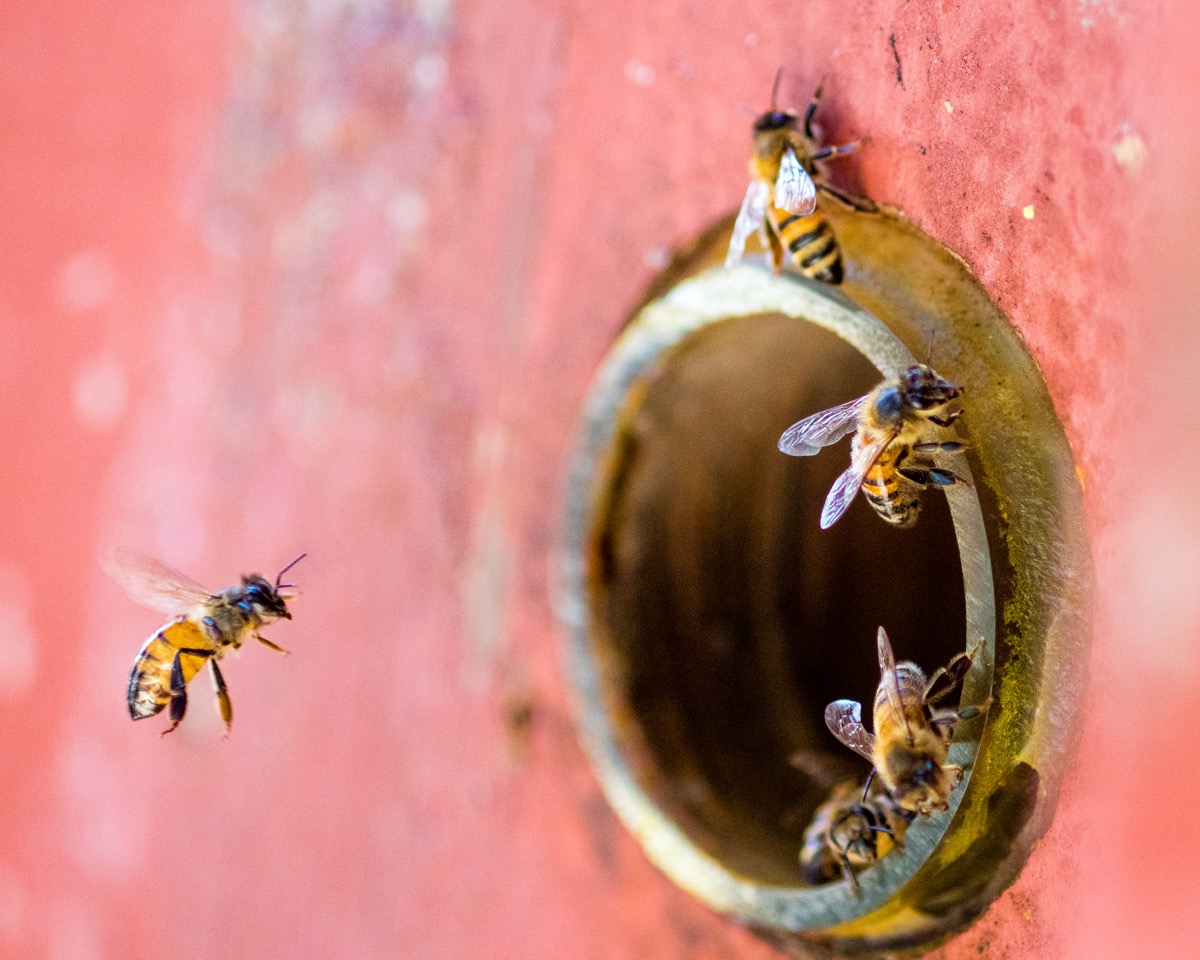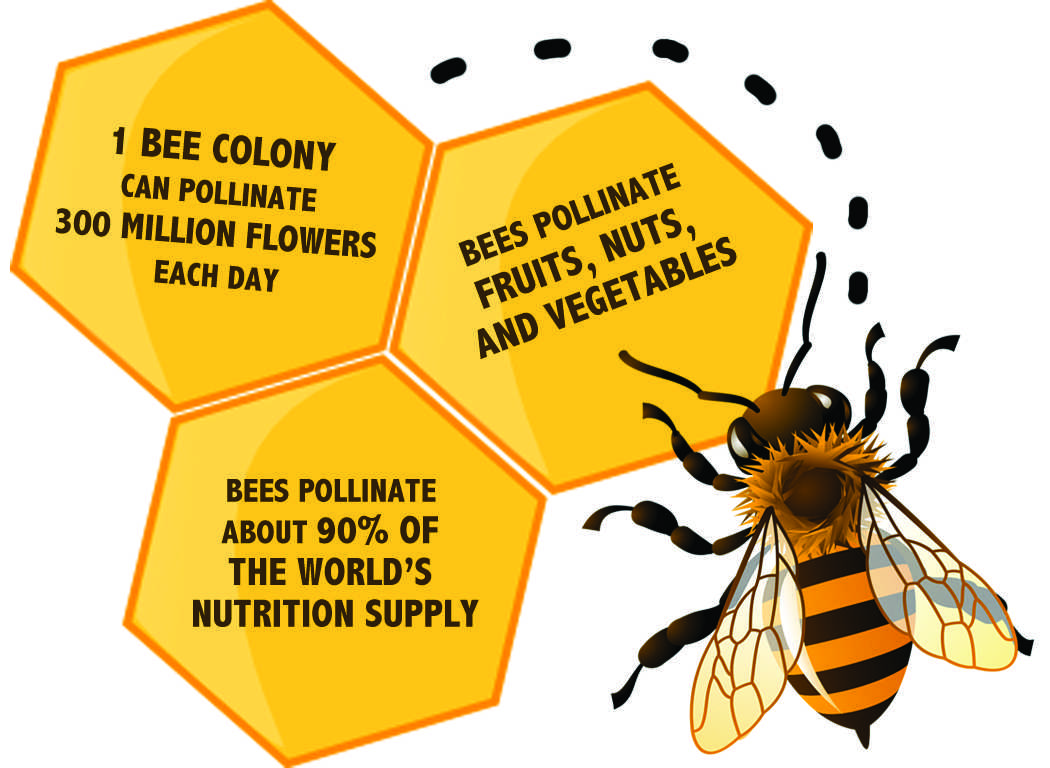Buzzing with Life: The Vital Role of Bees in Our Ecosystem
Buzzing with Life: The Vital Role of Bees in Our Ecosystem

The world is a symphony of interconnected life, and within this intricate orchestra, bees play a vital role. These tiny creatures, often overlooked in the grand scheme of things, are the unsung heroes of our ecosystem, silently weaving a web of life that sustains us all. From the vibrant blooms of wildflowers to the bounty of our fruit trees, bees are the silent architects of a thriving planet.
The Buzz of Pollination: A Symphony of Life
Related Articles: Buzzing with Life: The Vital Role of Bees in Our Ecosystem
- Weaving The Web Of Life: How Aboriginal Relationship With Land Ensures Economic Survival
- The Language Landscape Of Australia: More Than Just English
- Embracing The Spirit Of The Land: A Guide To Aboriginal Girl Names
- The Quandong: A Superfruit Packed With Nutritional Power
- From Outback To Outfield: The Rise Of Young Aboriginal Cricketers
At the heart of the bee’s ecological contribution lies pollination. This intricate dance between flower and insect is a delicate ballet of life, where bees, in their quest for nectar and pollen, inadvertently become nature’s messengers, carrying the vital genetic material from flower to flower. This seemingly simple act is the cornerstone of plant reproduction, enabling the creation of seeds and fruits, which in turn nourish countless other creatures, including ourselves.
Beyond the Honeycomb: A Multifaceted Role
While the honey bee is often the face of bee-related activity, the world of bees is far more diverse. From the solitary mason bees diligently building their mud nests to the industrious bumblebees buzzing through meadows, each species plays a unique role in the grand tapestry of life.
The Economic Impact of Bees: A Buzzing Economy
The economic significance of bees cannot be overstated. Their pollination services are estimated to be worth billions of dollars annually, contributing to the production of a vast array of fruits, vegetables, nuts, and other crops. Without bees, our food supply would be severely compromised, leading to higher prices and a decline in food security.
A World in Peril: The Decline of Bees
Unfortunately, the world’s bee populations are facing unprecedented challenges. Habitat loss, pesticide use, climate change, and disease are all contributing to a decline in bee numbers, threatening the delicate balance of our ecosystem. This decline has far-reaching consequences, impacting not only the availability of food but also the health of our planet.
Protecting Our Buzzing Friends: A Call to Action

Protecting bees is not just an environmental concern; it’s a matter of survival for us all. By understanding the vital role bees play in our ecosystem, we can make informed choices that support their well-being. Here are some ways we can contribute to bee conservation:
- Plant Bee-Friendly Flowers: Creating gardens with a variety of native flowers provides bees with a reliable source of nectar and pollen.
- Reduce Pesticide Use: Opt for organic gardening practices and support farmers who prioritize bee-friendly farming methods.
- Support Beekeepers: Buying local honey and supporting beekeepers helps maintain healthy bee populations.
- Educate Others: Spread awareness about the importance of bees and the threats they face.
- Advocate for Policy Change: Support legislation that protects bees and their habitats.

The Future of Bees: A Collective Responsibility
The fate of bees is intertwined with our own. By taking action to protect these vital pollinators, we are not only safeguarding their future but also ensuring the well-being of our planet and ourselves. Let us all become stewards of this delicate ecosystem, ensuring that the buzz of life continues to resonate through generations to come.

FAQ about Bees in the Ecosystem
Q: What is the most important thing bees do for the environment?
A: Bees are essential for pollination, which is the process of transferring pollen from one flower to another, enabling plants to reproduce and produce fruits, seeds, and vegetables. Without bees, our food supply would be significantly diminished.
Q: What are the biggest threats to bees?
A: The biggest threats to bees include habitat loss, pesticide use, climate change, and disease. These factors contribute to a decline in bee populations, impacting the health of our ecosystem and food security.
Q: How can I help protect bees?
A: You can help protect bees by planting bee-friendly flowers, reducing pesticide use, supporting beekeepers, educating others about bee conservation, and advocating for policy changes that protect bees and their habitats.
Q: Why are some bee species declining more than others?
A: Different bee species have varying levels of susceptibility to the threats they face. Some bees, like honey bees, are more adaptable to human-modified landscapes, while others, like solitary bees, are more vulnerable to habitat loss and pesticide exposure.
Q: What is the difference between a honey bee and a bumble bee?
A: Honey bees are social insects that live in colonies, while bumble bees are also social but have smaller colonies. Honey bees are known for producing honey, while bumble bees are important pollinators of various crops.
Q: Are all bees beneficial?
A: While most bees are beneficial pollinators, a few species, like the Africanized honey bee, can be aggressive. However, the vast majority of bees are harmless and essential for a healthy ecosystem.
Q: What can I do if I find a beehive in my yard?
A: If you find a beehive in your yard, it is best to contact a professional beekeeper or pest control company to remove it safely. Avoid attempting to remove the hive yourself, as it can be dangerous.
Q: What are some common misconceptions about bees?
A: Some common misconceptions about bees include the belief that all bees are aggressive, that they sting without provocation, and that they are only beneficial for honey production. It’s important to remember that most bees are gentle and play a vital role in pollination, not just honey production.
Q: Is it true that bees are dying out?
A: While some bee populations are declining, not all bees are dying out. However, the decline in certain bee species is a serious concern, and it’s important to take action to protect these vital pollinators.
Q: What are some organizations working to protect bees?
A: Numerous organizations are dedicated to bee conservation, including the Xerces Society for Invertebrate Conservation, the Pollinator Partnership, and the Bee Informed Partnership. These organizations conduct research, advocate for policy changes, and educate the public about the importance of bees.
Q: Can I help bees by planting wildflowers?
A: Yes, planting wildflowers in your garden or yard can provide bees with a valuable source of nectar and pollen. Choose native wildflowers that are adapted to your local climate and soil conditions.
Q: How can I learn more about bees?
A: There are many resources available to learn more about bees, including books, websites, documentaries, and local beekeeping clubs. You can also visit bee sanctuaries and apiaries to learn about beekeeping practices and the importance of bee conservation.
The future of our planet depends on the continued health and abundance of bees. By understanding their vital role in our ecosystem and taking action to protect them, we can ensure that the buzz of life continues to resonate for generations to come.

Closure
Thus, we hope this article has provided valuable insights into Buzzing with Life: The Vital Role of Bees in Our Ecosystem. We appreciate your attention to our article. See you in our next article!


